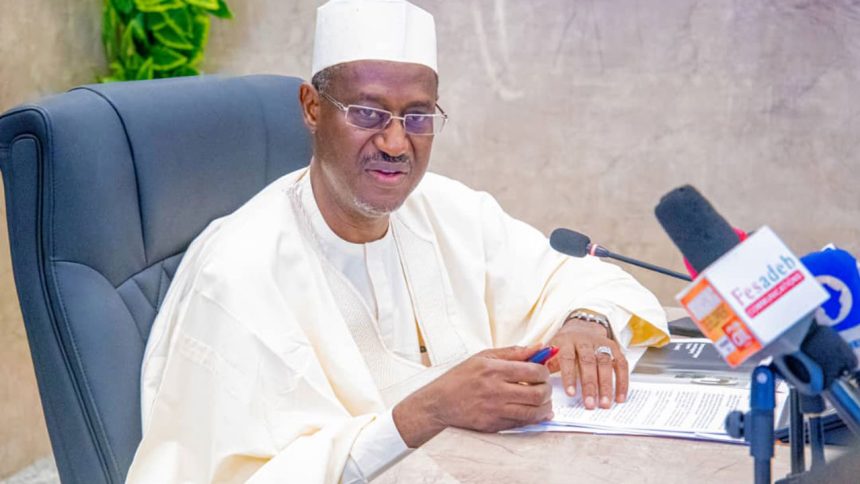The Minister of Housing and Urban Development, Arc. Ahmed Dangiwa, has raised concerns over Nigeria’s housing challenges, revealing that over 96% of land across the country remains untitled. He said this reality leaves millions of Nigerians living or doing business on land that lacks legal recognition, making it impossible for them to access credit or secure property rights.
Speaking during an interview at the midterm review of the housing sector under the Renewed Hope Agenda, Dangiwa stressed the importance of formal land documentation to unlock what he described as “dead capital.”
“Without Certificates of Occupancy, many Nigerians cannot convert land into wealth. This is why we are implementing the Nigeria Land Registration, Documentation, and Titling Programme (NLRDTP),” he explained.
The programme aims to partner with state governments to digitize land records, simplify titling procedures, reduce corruption, and build a national dashboard to track land ownership and availability. Dangiwa said the initiative could unlock over $300 billion in untapped land value, while also reducing land disputes and boosting investor confidence.
Affordable Housing Push Through PPP
Dangiwa highlighted the role of Public-Private Partnerships (PPP) as a cornerstone of the Renewed Hope Housing Programme, which he said has so far attracted over ₦70 billion in private sector investments. These funds are being channeled into housing developments in key areas like Karsana (Abuja), Ibeju-Lekki (Lagos), and Kano, where developers are responsible for design, funding, and construction, while the government provides land and policy support.
He noted that through these partnerships, housing delivery is becoming faster and more sustainable, especially in high-demand urban areas.

Social Housing for Grassroots Communities
Dangiwa also shed light on the Renewed Hope Social Housing Programme, which targets low-income and vulnerable groups such as artisans, market traders, persons with disabilities, and internally displaced persons. The goal is to deliver 77,400 homes—100 units in each of Nigeria’s 774 local government areas.
“This is the most inclusive housing programme ever attempted in Nigeria. We’re bringing development directly to communities that have long been excluded from housing interventions,” he said.
In addition to providing shelter, the programme is expected to create over 2 million jobs, boost local construction skills, and stimulate the growth of small and medium-sized firms in the building sector.
Notable Progress and Future Plans
According to the Minister, over 10,000 housing units have already been launched across 14 states and the FCT, with landmark projects including a 3,112-unit smart city in Karsana, a 2,000-unit estate in Ibeju-Lekki, and a 1,500-unit development in Kano.
Other states benefiting from the programme include Osun, Delta, Abia, Akwa Ibom, Ebonyi, Katsina, Oyo, Gombe, and Nasarawa, where 250-unit housing estates are underway.
Beyond housing construction, Dangiwa said over 150 slum upgrade projects have been implemented under the National Urban Renewal and Slum Upgrade Programme (NURSUP), targeting underserved communities across the six geopolitical zones.
Looking ahead, the ministry plans to establish building materials manufacturing hubs in each region to cut import dependence, lower construction costs, and promote industrial growth.
“We’re also working to improve access to housing finance by expanding single-digit mortgage schemes, non-interest loans, and rent-to-own options,” the Minister concluded.
These combined reforms, he said, are key to making affordable housing a reality for millions of Nigerians, while also stimulating economic growth and national development.



